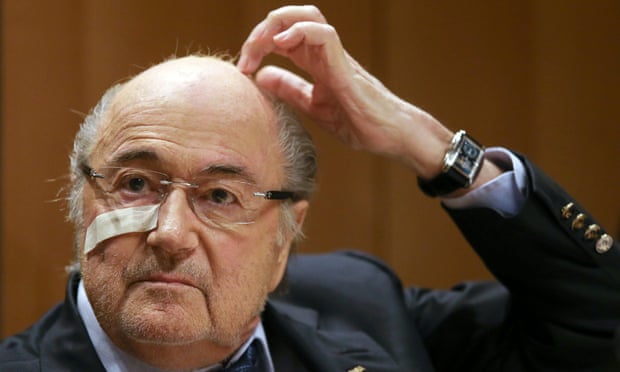
Back in the years of the trials against
World War II criminals, the German-born Jewish thinker Hannah Arendt used to
point out that due punishment was central to satisfying the victims’ claims for
justice. Not only was it essential in terms of reparation and rule of law, due
punishment also gave the punishing authority legitimacy in the eyes of those
concerned: it’s as much an act against impunity as it’s a defense of the rights of the victims. She wrote:
[I]n view of the current confusion in legal circles about the meaning and usefulness of punishment, I was glad that the judgment quoted Grotius, who, for his part, citing an older author, explained that punishment is necessary "to defend the honor or the authority of him who was hurt by the offence so that the failure to punish may not cause his degradation."
Up until his arrival to FC Barcelona, Luis
Suárez had been a test to rivals, referees, pundits, officials and pretty much
all of us when it came to our notions of how much punishment is due and fair for a constant and seemingly unrepentant offender. The English FA had the Uruguayan
striker banned for months of competition after finding he had used the Spanish
word “negro” against Patrice Evra. A season or so later, the same body banned
him again for biting Branislav Ivanovic during a set-piece in which the Chelsea
man had been holding and pulling Suárez. Despite the fact that both verbal
abuse and violent conduct are offenses which should be prosecuted by the
referee as they occur (by booking or sending off), in neither episode was Suárez shown a red card. Instead,
he was retrospectively prosecuted and punished.
Suárez’s misdeeds would have remained in
the Premier League annals had it not been for another episode of biting in the
vital match between Italy and Uruguay in the 2014 World Cup. The Ivanovic
pattern was repeated now with Giorgio Chiellini: a set piece to be kicked, a
defender holding a forward in the box, the forward gets alienated and finally
bites his rival’s shoulder. The offense, again, went unnoticed by the referee
despite the Italian desperately showing him the teeth-marks over his skin. Uruguay
thus could kick Italy out of the competition with eleven men when the interests
of justice were to have the South Americans trailing with just ten players. As
the images went viral immediately, and pundits and fans were inflamed and
bloodthirsty for “an exemplary punishment”, FIFA applied law retrospectively
and handed out Suárez a lengthy ban that is going to be completed only in next
February when Uruguay resumes World Cup qualifiers.
“An exemplary punishment” devised to learn Suárez a lesson he won’t forget, that FIFA ominous ban did little and nothing
to prevent terrible aggressions from happening again. Due punishment must also be an
instrument to inhibit misconducts on the field. And the case of Suárez sadly
was and will be just one of witch-hunting when far worse infractions (like Arda
Turan throwing his boot against a linesman, or Felipe Melo trying to behead
Lucas Biglia with a karate kick) are prosecuted as “average” or aren’t
prosecuted at all. Witch-hunting, the exact opposite of due punishment, undermines
the legitimacy of the punishing authority and neglects calls for justice from
those offended on a pitch. The many retrospective bans the Suárez disciplinary
file may still accumulate over the years will not preclude the Turans or the Melos
from offending again in the future.
Sepp Blatter, the acting president of FIFA
when Suárez was punished, has now received an eight-year ban from
soccer-related activities. Ruling out
the charge of corruption (to wit: that Blatter enriched himself using his post
at FIFA), the Ethics Committee found him guilty of offering gifts to Michel Platini and of conflict of interest as the Swiss was unable to demonstrate that
the 2 million Swiss francs payment to the UEFA suspended president had some legal basis. Without a more
detailed, well-sustained and far-reaching verdict from the Ethics Committee,
however, the impression is that FIFA built its probe against Blatter merely on
the criminal investigations of the Swiss authorities and therefore this body is
one more time witch-hunting rather than executing due punishment.
Blatter’s ban of course comes as vindication for Luis Suárez’s mistreatment. It tells us unequivocally that whoever uses the FIFA infernal political machine to witch-hunt is prone to being witch-hunted himself. Perhaps Suárez’s wishes for a fair treatment are now satisfied (in a quite narrow sense) when he sees an otherwise fat cat being given a ban similar to that which he still has. But the worst practices presided over by Blatter during his long tenure, vote-buying, suspicions of electoral fraud and forgery, were neither investigated nor punished by the Ethics Committee. And that’s truly a source of concern since the witch is now gone but witchcraft still is here.
Blatter’s ban of course comes as vindication for Luis Suárez’s mistreatment. It tells us unequivocally that whoever uses the FIFA infernal political machine to witch-hunt is prone to being witch-hunted himself. Perhaps Suárez’s wishes for a fair treatment are now satisfied (in a quite narrow sense) when he sees an otherwise fat cat being given a ban similar to that which he still has. But the worst practices presided over by Blatter during his long tenure, vote-buying, suspicions of electoral fraud and forgery, were neither investigated nor punished by the Ethics Committee. And that’s truly a source of concern since the witch is now gone but witchcraft still is here.

